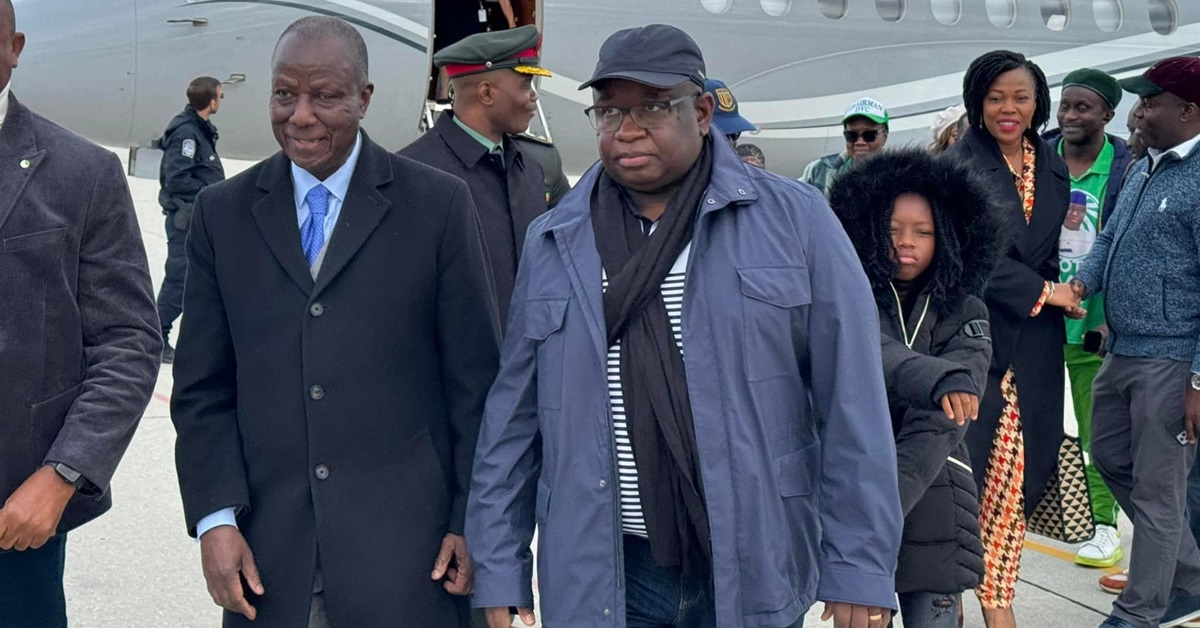President Julius Maada Bio recently delivered a thought-provoking Lecture at the University of Pennsylvania’s Center for African Studies on lessons learned in democratic governance, transformational politics, and inclusive development in Africa, with a focus on the Sierra Leone experience.
This event which attracts a diverse audience, stimulates discussions on the challenges and opportunities facing Africa today.
President Bio who in November last year, survived a coup attempt just a few months into his second term states that Democracy is like “a muscle that requires constant exercise to remain robust and resilient.”
Bio said the attempt to topple him had left a dark patch in the country’s social fabric.
Our democracy’s vitality is anchored in its ability to withstand both domestic tribulations and the unpredictable forces of a changing world, compelling us to uphold our foundational principles steadfastly.
Bio said he was a democrat because, instead of clinging to power after being directly involved in the 1992 and 1996 coups, he opted for what was right and what he believed in.
“Choosing to relinquish power, especially as a young leader who could have justified holding onto power, was not merely a personal decision, but a declaration of my commitment to democratic governance,” he said.
“These challenges call into question the effectiveness of Ecowas, as a regional body, in its crucial role as a mediator and guardian of democratic principles.
“I remain committed to the difficult and necessary task of making sure that this body becomes more relevant and effective in upholding and strengthening democracy, and call upon fellow leaders to do the same,” he said.
President Bio concluded with a call to action for democratic principles, peace, and inclusive development, urging stakeholders to navigate the digital era with resilience and belief in a shared future.
The President’s address at the University of Pennsylvania signifies Sierra Leone’s dedication to democratic governance and inclusive development, resonating with global audiences and igniting conversations on Africa’s role in the global arena.












Is Maada Bio a democratic leader? Maada Bio was there in America praising himself and claiming to be a democratic leader. This is what we call “”Self praise”. Indeed, the best people to asses or evaluate Maada Bio and his regime are the people of Sierra Leone.
Maada Bio has never attempted to Give a lecture of this type In any of the Universities in Sierra Leone.
Maada Bio’s plan is to LAUNDER Himself in America so that the American people and Government will accept him. Of course, If the American people accept him as aClean man then something is definitely wrong with them. We the people of Sierra Leone expect the American audience to be SMART in their thinking. How can a president who has killed more than a thousand innocent people ( demonstrators) in his country label himself as democratic? Even the most Corrupt regional organization in the World (E COWAS) did not recognize Maada Bio as president. Besides, Maada Bio Stole the Democratic rights (votes) of the people of Sierra Leone. Maada Bio conducted the most violent elections in Sierra Leone. Maada Bio ordered his PAOPA killer police and PAOPA killer military officers to burn his opponents’ houses in his strong hold.
Maada Bio arrested and prisoned his political opponents. Sierra Leone is a multiparty democratic country, Maada Bio frustrated Many political parties from contesting the elections.
Maada Bio was in America to waste the miger resources of the nation. He came back with a bullet proof car. This shows how Maada Bio does not care about the sufferings of the people of Sierra Leone. This is the country with the most unhappiest people in the world., The country with the worst economy and the Darkest country in the world.
How good and how pleasant it is for these anti-Maada Bio to keep on attacking this president. They say Maada is a killer, when their party keep on killing their opponents all the time and just recently, killed 21 security personnel.
They keep talking about suffering when they are the ones who started the suffering on the people that the people revolted against them in 2018 with the slogan “angry boku.”
They keep pressuring the outside world to withdraw all aids to the country including the MCC money and they say the country has the most unhappiest people in the world.
They keep destroying electrical equipment across the country and they are complaining about the darkest country in the world.
You people have just lost the 2028 elections because all these are the weapons the SLPP will use against you.